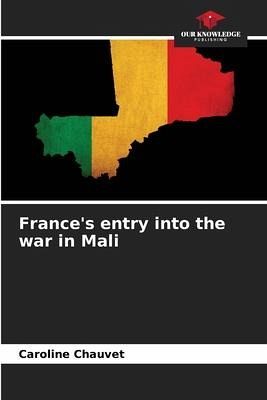
France's entry into the war in Mali
Versandkostenfrei!
Versandfertig in 6-10 Tagen
43,99 €
inkl. MwSt.

PAYBACK Punkte
22 °P sammeln!
At 5.30pm on 11 January 2013, the French President took to the podium to announce that France was going to war in Mali. This marked the start of the Serval military operation. It came as a surprise to many commentators, for whom there was no reason to expect such a declaration. A few days earlier, François Hollande was still maintaining that France would not intervene directly against the jihadists in northern Mali. How can this decision be explained, and to what extent is it a "surprise"? The author has delved into the 'black box' of the State, personified in the figure of a President who is...
At 5.30pm on 11 January 2013, the French President took to the podium to announce that France was going to war in Mali. This marked the start of the Serval military operation. It came as a surprise to many commentators, for whom there was no reason to expect such a declaration. A few days earlier, François Hollande was still maintaining that France would not intervene directly against the jihadists in northern Mali. How can this decision be explained, and to what extent is it a "surprise"? The author has delved into the 'black box' of the State, personified in the figure of a President who is master of the decision. But we often forget that behind a State and its leader lies a whole range of actors and institutions with different and sometimes conflicting rationales. Investigation and analysis of the decision-making process for France's entry into the war in Mali.












